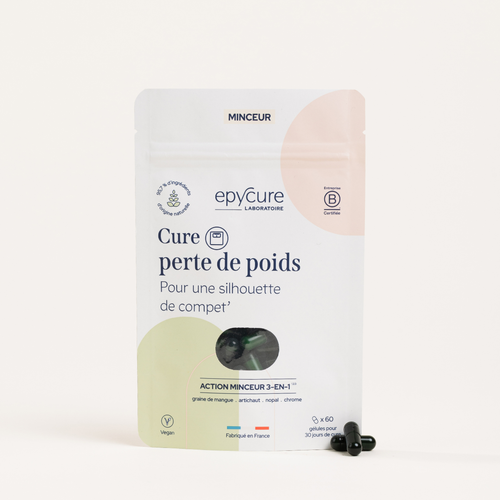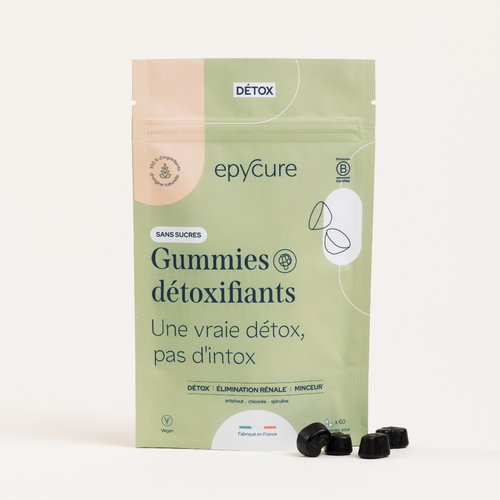When your lower stomach is a little round, it could be bloating, lack of tone in the abdominal area, or simply an accumulation of fat. And if belly fat forms very quickly, it is very difficult to get rid of it. It therefore happens that even after a diet, cardio or abdominal sessions, you are not able to make your little belly disappear. Your lifestyle and eating habits therefore surely require some adjustments. We give you some tips to help you lose that little belly that follows you everywhere.
Why is it so difficult to have a flat stomach?
To begin with, it seems essential to understand where a small round belly can come from and why it is so hard to get rid of it. Often, the belly can appear bloated due to poor diet and fat accumulation. We generally talk about subcutaneous abdominal fat, which is hidden under the skin, and a little less about visceral fat, which is more dangerous for health since it surrounds the organs. Whatever their origin, several factors are involved in their storage and the difficulty in getting rid of them, such as age, hormones, stress, transit problems, sleep disorders, etc.
- For example, as we age, the body changes and metabolism slows, which means we burn fewer calories to function. During the premenopause and menopause phase , it is therefore common to accumulate more fat in the lower abdomen. Be careful not to confuse fat and sagging skin…
- Morphology also has a lot to do with it. Indeed, someone who tends to accumulate fat in the stomach and hips has an apple-shaped body shape, which means that it is more difficult to lose abdominal fat unless they practice regular physical activity. .
- A good diet and a good sporting rhythm does not mean that we do not store fat. Indeed, stress can also be responsible for the accumulation of fat in the body, particularly in the abdomen due to excess cortisol in the body (the stress hormone).
- Furthermore, the round lower stomach is not necessarily due to the presence of fat, but simply to air. Indeed, an unsuitable diet, rich in refined products, has a strong impact on our digestion and our intestinal transit, leading to fermentation problems and excess gas produced in the intestines, which automatically causes the lower abdomen to swell.
Foods that are enemies of a flat stomach
So there are many reasons that prevent you from having a flat stomach. In addition to all these factors, certain foods and drinks cause the stomach to swell and should therefore be banned from your daily life.
- Carbonated drinks : Carbonated waters and sodas, rich in bubbles and therefore rich in gas, are the enemy of flat stomachs since they cause them to swell. So opt for still water instead, or if you can't do without it, drink your glass of sparkling water in small sips to swallow less air.
- Beer: It is the drink most likely to make the stomach swell since in addition to being particularly high in calories, the yeast and the gas it contains cause bloating.
- Chewing gum : Chewing makes you swallow air when swallowing, which causes your stomach to swell. So to prevent your stomach from filling up with gas, avoid consuming it as much as possible.
- Saturated fats : Even if they are far from being the only one responsible for bloated bellies, they are part of it. Foods rich in fat such as fried foods, dishes with sauces, cold meats, certain cheeses, etc. are heavy to digest and therefore slow down transit. They cause digestive discomfort such as bloating and flatulence.
- Sugar : Sugar can be stored like fat, or even more... Simple sugars, or carbohydrates with a high glycemic index, contained in biscuits, white bread and sweets for example, raise blood glucose levels this way. which boosts insulin secretion and therefore fat storage capacity. So avoid snacking that causes insulin spikes and choose low-glycemic carbohydrates like whole grains.
- Processed foods : Rich in sugars and fats, they also contain a large amount of salt. Unfortunately, salt promotes water retention and therefore contributes to the bloated appearance of the belly. In addition, fats and sugars are directly stored in adipose tissue.
- Cruciferous vegetables : Cauliflower, broccoli, Brussels sprouts, etc., ferment in the stomach and therefore promote stomach swelling. Indeed, the sulfur components of cruciferous vegetables make them quite complicated to digest. Avoid eating them too often and remember to blanch the leaves in boiling water with baking soda before cooking them.
- Raw vegetables: Some raw vegetables are really difficult to digest and ferment in the digestive tract. They create a feeling of bloating and unpleasant gas. Don’t hesitate to favor lightly cooked vegetables.
Foods to favor for a flat stomach
To get a flat stomach, you have to choose the right foods. Not to mention diet, a good balanced diet is the key to a healthy body and a flat stomach. Change your habits in the long term by eating a variety of foods, to your hunger, and by integrating essential nutrients into your diet (fiber, proteins, carbohydrates, essential fatty acids, vitamins, minerals). Nothing beats simple cooking based on products. raw and natural.
- Oleaginous fruits : Perfect snacks, nuts, almonds, hazelnuts, are rich in omega-3 which are digested slowly, promote the feeling of satiety and avoid snacking.
- Proteins : Eggs, turkey, chicken breast, legumes, tofu, they are rich in essential amino acids which allow them to repair tissues, maintain muscle mass and boost metabolism.
- Green tea : It contains powerful antioxidants which have a thermogenic effect, that is to say they increase calorie expenditure and promote fat oxidation.
- Apple cider vinegar, slimming tip : It reduces appetite and blood sugar and insulin levels and also promotes fat burning, particularly in the abdominal area.
- Complex carbohydrates : Quinoa, whole grains, legumes, etc. with a low glycemic index, they help maintain stable energy and limit its storage in the form of fat.
- Blueberry, an antioxidant berry : This fruit, rich in fiber and low in calories, helps reduce body fat, lower cholesterol levels and reduce blood sugar levels.
- Fish : Salmon, sardines, herring, etc. They are rich in anti-inflammatory omega-3, and contribute to the proper assimilation of fats and the regulation of transit.
- Fermented foods : Miso, kefir, sourdough bread, etc. These natural probiotics will repopulate your intestine with beneficial bacteria and contribute to the proper digestion of food.
- Fresh fruits : Apple, pear, banana, pineapple and plum are easy to digest, rich in essential nutrients (vitamins and minerals) and contain a lot of soluble fiber which facilitates intestinal transit.
- Green leafy vegetables : Spinach, chard, zucchini, asparagus, salad, etc. all these plants provide an enzyme to our body which feeds good bacteria and improves our digestive well-being.
- Ginger, a powerful antioxidant : When taken before a meal, its rhizome helps prevent bloating, stimulates digestive enzymes and thus promotes better digestion.
- Oatmeal : Satisfying and low in calories, oatmeal provides energy to the body and therefore helps to better control cravings. Thanks to their fiber composition, oats improve intestinal transit, one of the essential conditions for a flat stomach.
- Plain water : Water retention is one of the major causes of belly bloating. Sufficient hydration helps drain the body and therefore eliminate toxins, fight against the phenomenon of water retention and can have an appetite suppressant effect. So drink regularly, throughout the day, around 1.5 to 2 liters.
As you know, diet is not the only factor that impacts belly swelling. To find a flat stomach, think about sport: combine a targeted exercise (abs, pilates, etc.) with a little cardio (jogging, cycling, etc.) to burn abdominal fat and develop your transverse muscles. Also remember to practice conscious eating by savoring every bite of your plate and taking the time to chew because eating too quickly and in excess leads to the fermentation of food in our intestines, and therefore heaviness, reflux and bloating.







